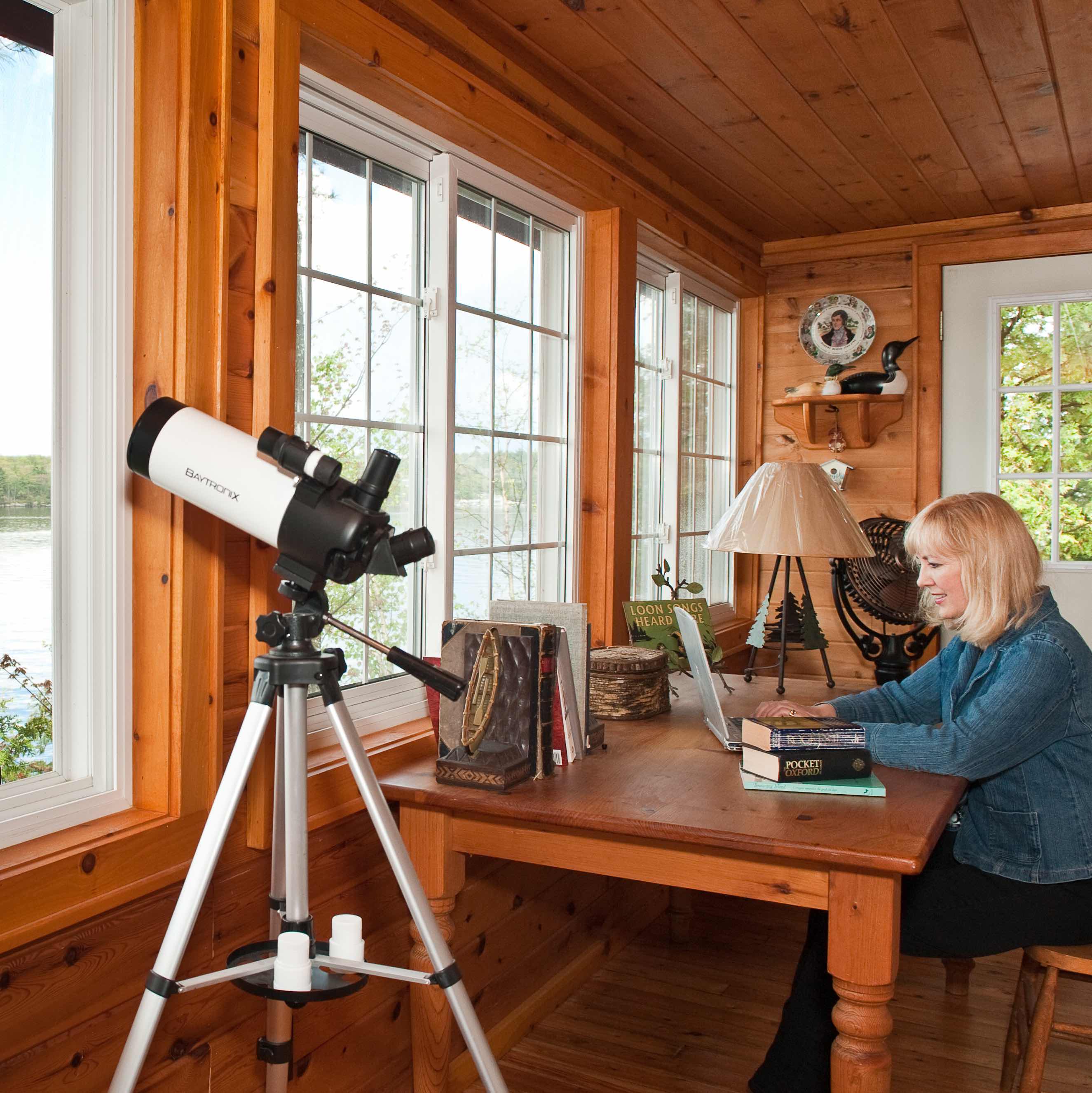
Muskoka Moments - Journals embrace the past
By Cheryl Cooper
The very best days of my life have been lived in Muskoka. Beginning in the early 50s, my maternal grandparents, Paul and Isabelle Moreland, and my paternal grandparents, Sam and Margaret Evans, had cottages side-by-side on little Camel Lake, north of Bracebridge. Every summer, I spent four, fun-filled weeks there in the company of aunts, uncles and cousins. The hours were carefree and magical, spent swimming, water-skiing, playing kick-the-can, picking red and black raspberries, capturing leeches that dared to trespass our beach, learning how to replicate the call of a loon with a slim blade of grass, and exploring the mysterious woodlands behind our cabins. I thank my older self every day for keeping those memories burning brightly in my heart and mind in journals that I began writing at the ripe old age of 11.
Fifty years on, I have reached a page count of 5,946, and the 47 volumes, holding the pages of my life’s history, are locked away in fire-proof safes for posterity. When we are younger, we cannot believe we will ever forget moments and milestones but sadly, many are lost along the way.
How wonderful it is to be able to flip through the pages of my teenaged years and relive my adventures in Muskoka. How wonderful to read conversations from yesteryear between family members and friends written in my own, youthful words. Events and feelings long buried in the frenetic minutiae of living rise again: hilarious nights battling hordes of mosquitoes; my shrieking reaction to the mama leech that attached herself and her babies to my legs; losing the top of my bathing suit while attempting to show off my water-skiing skills; finding a sunken rowboat I was convinced had been one of Christopher Columbus’s lost ships; and the thrill of my Grandpa Moreland’s epic breakfasts of Vita-B porridge, half an egg, one slice of bacon, Wonder Bread and instant coffee served to his “by invitation only” guests at his dining table in the sun porch while Gordon Sinclair delivered the news on CFRB.
Following the death of my beloved grandparents, the Evans cottage was sold and the Moreland cabins were passed on to my aunts. It was around this time that my husband and I decided to live permanently in Bracebridge.
Once our two sons were in school full-time, my journaling expanded to writing articles for local publications and ultimately to a series of novels set on the high seas during the War of 1812. In 2002, my husband and I purchased an old cottage on Browning Island. Every weekend spent there over the past 20 years has included time for journaling and reflection, and the creation of my naval characters and plots.
With pen in hand or fingers flying over the keys of my laptop, I write. Around me the lofty pines whisper their secrets; cottagers laugh in the distance, the Segwun blows her soul-stirring whistle, and the passing wind riffles the gleaming hues of blue and green on Lake Muskoka. Oft-times, my friends have accompanied me to the island where they would write their own stories in a solitary location of their choosing: the dock, the deck, the loft, the boat. And in the evenings, as the sun begins her slow descent and the haunting cries of the loons echo through the night air, we would gather to share our chapters and discuss them in the spirit of literary camaraderie.
It is now time to bid farewell to Browning Island. Despite leaving behind our cherished neighbours, the magnificent vistas of Lake Muskoka and the pines trees I have come to know and love, I am looking forward to a new adventure. In this, the latter chapter of my life, I shall be returning to Camel Lake, coming full circle, surrounded by cousins and the memories of my youth, back to the dear little place where my writing and journaling first began.
Cheryl Cooper has lived in Bracebridge for 32 years. She is a former teacher of the Deaf and is presently a public speaker and author of Come Looking for Me, Second Summer of War and Run Red with Blood, works of historical fiction set on the high seas during the War of 1812.
